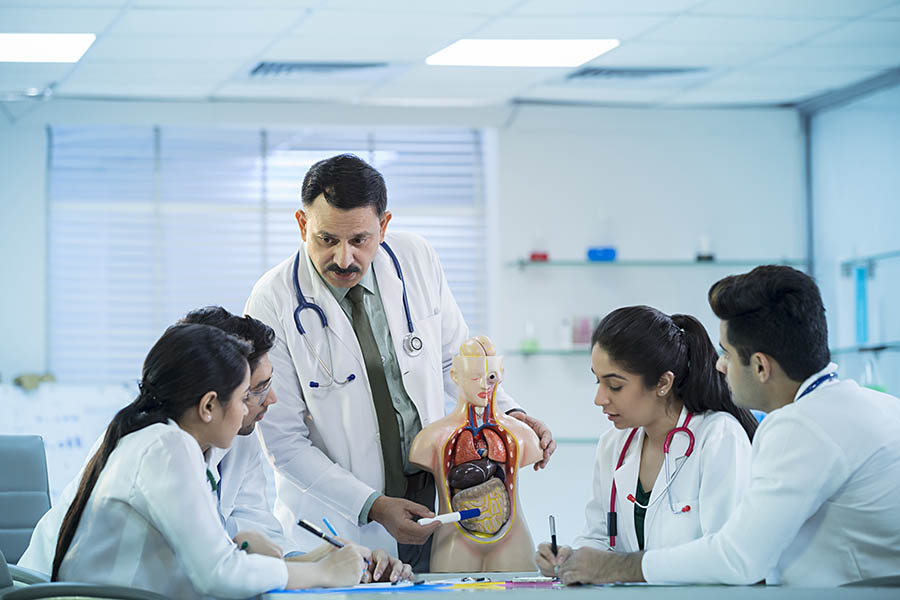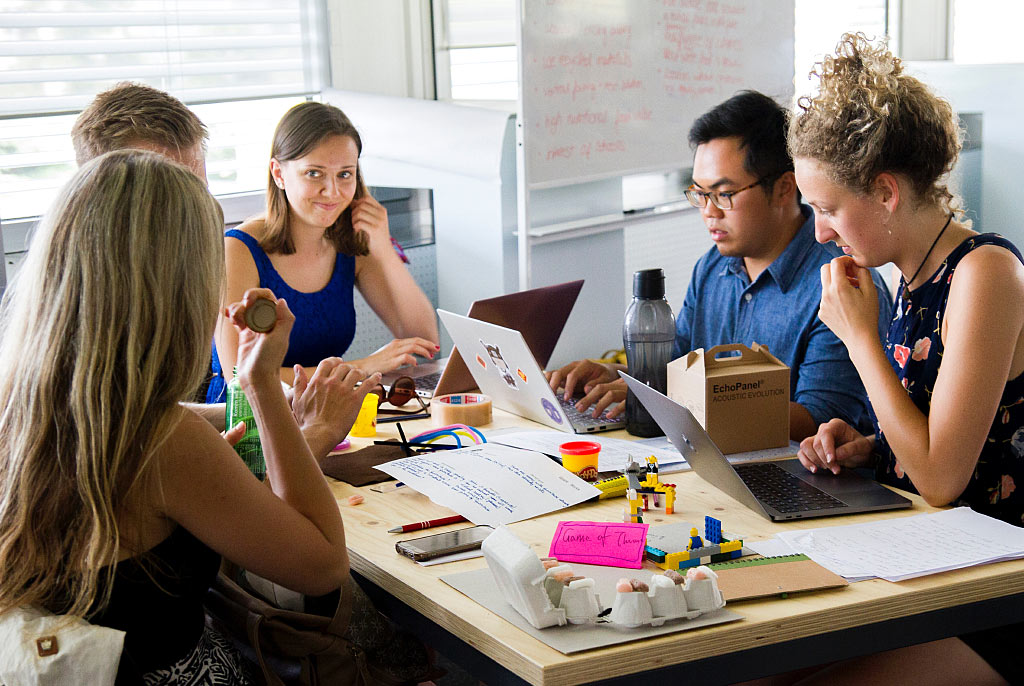Overview
Complete the first year of your degree in Sri Lanka and transfer seamlessly to Staffordshire University, UK to embark on your second year and complete your degree in the UK. You will be enrolled on the first year of the BSc (Hons) Biomedical Science degree which you will study in Sri Lanka and then transfer to Staffordshire University, Stoke-on-Trent, UK to commence your second year of study and complete your degree at the University. You will study the identical first year curriculum being delivered at Staffordshire University, UK to ensure a smooth transition.
Our Visa Support Team will guide you through the transfer process assisting you with your visa applications and arrival in the UK.
As part of the enrolment process, we will advise you on the financial commitment for this degree programme and the requirements for a smooth transition to studying at Staffordshire University, UK.

Biomedical scientists are leading the fight against disease and their work touches on the lives of virtually everyone in the UK.
Whether analysing blood samples, examining tissues at molecular level or monitoring the effects of a major virus, biomedical scientists’ results provide the basis for 70% of all diagnoses within the NHS.
Now is your chance to make a difference by joining the experts winning the battle against national and global health challenges. You could be working with real human cancer tissue to gain first-hand experience of what it is like to be a cancer scientist. After learning how to culture the cells, you will apply a particular treatment. You could also be investigating actual pathogens like E. coli or exploring how probiotics can help people lead healthier lives. Through your degree, you’ll be generating new knowledge for science.
Staffordshire University – Your Best Pathway to a British Degree
From day one on the course, you will be treated as a University scientist and will be part of Staffordshire University UK’s research community. We won’t just get you to study Biomedical Science – you will be doing it for real.
You’ll be expected to complete 105 hours’ worth of work placements. Opportunities could also include internships and volunteering.
Staffordshire University UK works with a range of local, regional and national employers and can support you to find your placement. Its industry links include the prestigious companies at Alderley Park in Cheshire, the UK’s largest single-site life science campus. Students from Staffordshire University UK have also done placements in NHS labs where they perform graduate-level roles.
Some have worked for companies like Cobra Biologics, which specialises in materials used for gene therapy and was a manufacturer for the Oxford-AstraZeneca Covid-19 vaccine.
Teaching and Learning
You will be taught via a mix of lectures, seminars, tutorials, debates and practical sessions, from which you will learn about the relevance of Biomedical Science to a variety of contemporary issues. The focus will be on applying your knowledge in the real world. You will graduate with a creative approach to problem-solving, have teamworking and persuasive communication skills, and show confidence in managing time, projects and resources.
You will use resources including books, journals and digital databases, social media resource banks and more to immerse yourself in each discipline. To build further links, there will also be career talks, visits and guest speakers from industry. You will learn from staff who bring a wealth of experience in Biomedical Science and research expertise.
Career Options
Here are few opportunities that suit you best:
- Biomedical Engineer
- Biomedical scientist
- Biotechnologist
- Clinical research associate
- Clinical scientist, biochemistry
- Clinical scientist, immunology
- Forensic scientist
Modules
Year 1
Compulsory modules:
Developing Research and Professional Identity (20 credits)
Disease Health and Environment (20 credits)
Genetics and Diversity (20 credits)
Molecular and Cellular Diversity (20 credits)
Practical Skills for Life Scientists (40 credits)
Year 2
Compulsory modules:
Applied Scientific Practice (Advanced Skills) (40 credits)
Global Issues and Professional Development (20 credits)
Health and Disease (Development and Detection) (40 credits)
Interventions and Disease Management (20 credits)
Year 3
Compulsory modules:
Current Advances and Bioethics (20 credits)
Diagnostic Pathology (20 credits)
Life Science Research Project (40 credits)
Optional modules:
Applied Parasitology and Medical Entomology (20 credits)
Cancer Biology and Regenerative Medicine (20 credits)
Conservation Biology (20 credits)
Genomics and Bioinformatics (20 credits)
Integrated Biology of Disease (20 credits)
Managing the Natural World (20 credits)
Medical Immunology and Immunotherapy (20 credits)
Microbial Genomes and Pathogenesis (20 credits)
Molecular Pharmacology (20 credits)
The Brain (20 credits)
Toxicology (20 credits)
Entry Requirements
One of the three options gives you the opportunity to register with us.
1) GCE Advanced Level
- Sri Lankan exam : 3 passes or
- Cambridge or Edexcel exams: 3 D passes or
- Any combination totalling to 12 points from the following tariff scheme:
- GCE Advanced Level Grade (Sri Lankan/Cambridge/Edexcel/NCUK IFY)
- A – 10 points
- B – 08 points
- C – 06 points
- D/S – 04 points
- E – 02 points
And
GCE/GCSE Ordinary Level – Credit Passes (Grade 4) for English
2) NCUK International Foundation Year
- 3 D passes for the subject modules or
-
Any combination totalling to 12 points from the tariff scheme above in point 1.
And
A ‘D’ for English for Academic Purposes
3) Equivalent Qualification
Connect with Staffordshire University Today
+94 76 030 0032 85, Braybrooke Place, Colombo 2, Sri Lanka.

